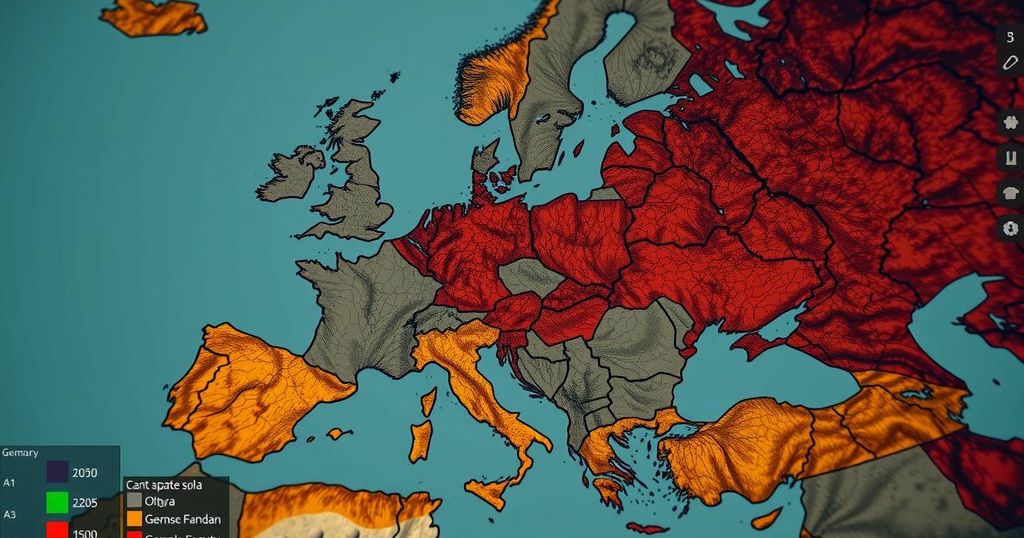The Contemporary Parallels of Genocide: Israel’s Actions in Gaza and Lebanon
This article discusses the ongoing military actions by Israel in Gaza and Lebanon, highlighting issues of potential genocide, international response, and protests across Europe. It details the high civilian death toll, German government reactions, and historical parallels with Germany’s colonial past. The article also touches on legal proceedings against Germany for facilitating Israel’s military actions through arms supply.
The recent actions of Israel in both Gaza and Lebanon have ignited widespread condemnation, with many asserting that the regime’s military operations embody genocidal tactics reminiscent of historical atrocities committed in Namibia. With claims that over 42,600 Palestinians, including thousands of children, have been killed since the start of renewed hostilities in October 2023, the gravity of the situation cannot be understated. Israeli Prime Minister Benjamin Netanyahu has linked recent military successes against Hamas leaders to the potential conclusion of the ongoing conflict. Protests across several European nations, including Germany, have surfaced, criticizing both the Israeli military campaign and the German government’s remarks, which some interpret as tacit approval of civilian casualties during military engagements. Notably, bold statements by German Foreign Minister Annalena Baerbock have come under heavy scrutiny for suggesting that civilian protections diminish in contexts where combatants are present. Meanwhile, Germany’s role in arming Israel amid these allegations has led other countries, including Nicaragua, to file legal actions against Germany, claiming that such arms facilitate genocidal actions. This situation reflects a frayed moral compass reminiscent of Germany’s own colonial past, thus amplifying calls for accountability in both historical and contemporary contexts. The plight of Palestinians and the catastrophic toll of military actions are reminders of the dire necessity for international intervention and the imposition of arms embargos to halt the ongoing violence.
The geopolitical tensions surrounding Israel and Palestine have deep historical roots, heightened in recent months by Israel’s military actions described as genocidal by critics. Following October 2023, a military offensive was launched against Gaza, which has led to significant loss of life, including many non-combatants. Concurrently, Israeli forces have engaged in hostilities against Hezbollah in Lebanon. Various nations and international organizations have raised concerns about human rights violations, leading to widespread protests throughout Europe advocating for an end to the violence and demanding accountability from governments that support Israel through military aid. Germany’s position in this conflict is particularly contentious due to its historical legacy, having previously acknowledged its role in genocidal acts during its colonial period in Namibia. The parallels drawn between these historical actions and current events in Gaza have sparked significant discourse on moral responsibility and geopolitical alliances. The calls for an arms embargo against Israel highlight the increasing discontent with the West’s complicity in the ongoing violence in the region.
In conclusion, the situation in Gaza and Lebanon continues to evoke strong reactions globally, as the high casualty figures starkly illustrate the humanitarian crisis at hand. The juxtaposition of Germany’s reactionary statements and its historical context raises critical questions about moral consistency and international responsibility. Continued protests and legal actions against nations perceived to be complicit in war crimes signify a growing demand for justice and accountability in light of ongoing military actions in the region. As calls for an arms embargo against Israel resonate, the international community is urged to reflect on its role amidst these troubling narratives and seek solutions that prioritize peace and human rights.
Original Source: www.tehrantimes.com




Post Comment